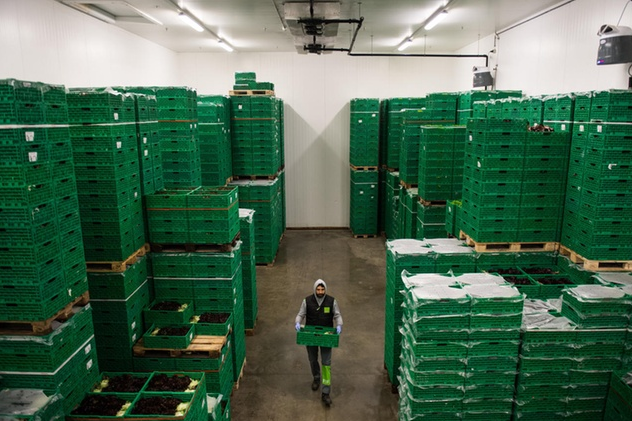High street shops have been closed and some production facilities have been ordered to shut down. (© Keystone / Gaetan Bally) A third of a CHF20 billion ( billion) fund offering state guaranteed loans to small and medium sized Swiss companies has been used up just four days after being introduced. The loan facility has already promised CHF6.6 billion in funding of up to CHF500,000 to nearly 32,000 firms – an average of CHF207,000 per company. The speed at which loans have been claimed so far may justify estimates from economists that it will need to grow in size to fulfil its purpose of protecting SMEs from going under. “Of course, the issue of topping up is on the agenda,” Erik Jakob of the State Secretariat for Economic Affairs (Seco) told a news conference
Topics:
Swissinfo considers the following as important: 3.) Swiss Info, 3) Swiss Markets and News, Business, Featured, newsletter
This could be interesting, too:
Nachrichten Ticker - www.finanzen.ch writes Die Performance der Kryptowährungen in KW 9: Das hat sich bei Bitcoin, Ether & Co. getan
Nachrichten Ticker - www.finanzen.ch writes Wer verbirgt sich hinter der Ethereum-Technologie?
Martin Hartmann writes Eine Analyse nach den Lehren von Milton Friedman
Marc Chandler writes March 2025 Monthly

High street shops have been closed and some production facilities have been ordered to shut down. (© Keystone / Gaetan Bally)
A third of a CHF20 billion ($21 billion) fund offering state guaranteed loans to small and medium sized Swiss companies has been used up just four days after being introduced.
The loan facility has already promised CHF6.6 billion in funding of up to CHF500,000 to nearly 32,000 firms – an average of CHF207,000 per company. The speed at which loans have been claimed so far may justify estimates from economists that it will need to grow in size to fulfil its purpose of protecting SMEs from going under.
“Of course, the issue of topping up is on the agenda,” Erik Jakob of the State Secretariat for Economic Affairs (Seco) told a news conference on Monday. “It is now perhaps becoming a faster topic than initially thought.”
Another plank of the CHF42 billion bailout plan concerns some CHF14 billion to compensate employees for lost earnings when they are forced to work shortened hours.
In less than a week, the shortened hours compensation scheme, which covers 80% of lost wages, recorded 70,000 applications from companies. In canton Ticino, which borders Italy and is one of the cantons hardest hit by coronavirus, some 40% of the workforce is on shortened hours. The Swiss average is 15.6%.
But Jakob said he was satisfied that the scheme is saving jobs, pointing out that Switzerland’s unemployment rate of 2.9% remains virtually unchanged so far.
Compensation has been extended to the self-employed, a luxury that freelance workers do not usually enjoy under the scheme. The authorities expect some 160,000 self-employed people to register, costing around CHF1.5 billion should economic restrictions continue for three months.
Under the powers of the Epidemics Act, the government has shut down non-essential high street shops and services while some cantons have been allowed to order certain manufacturing and construction operations to close.
Tags: Business,Featured,newsletter








